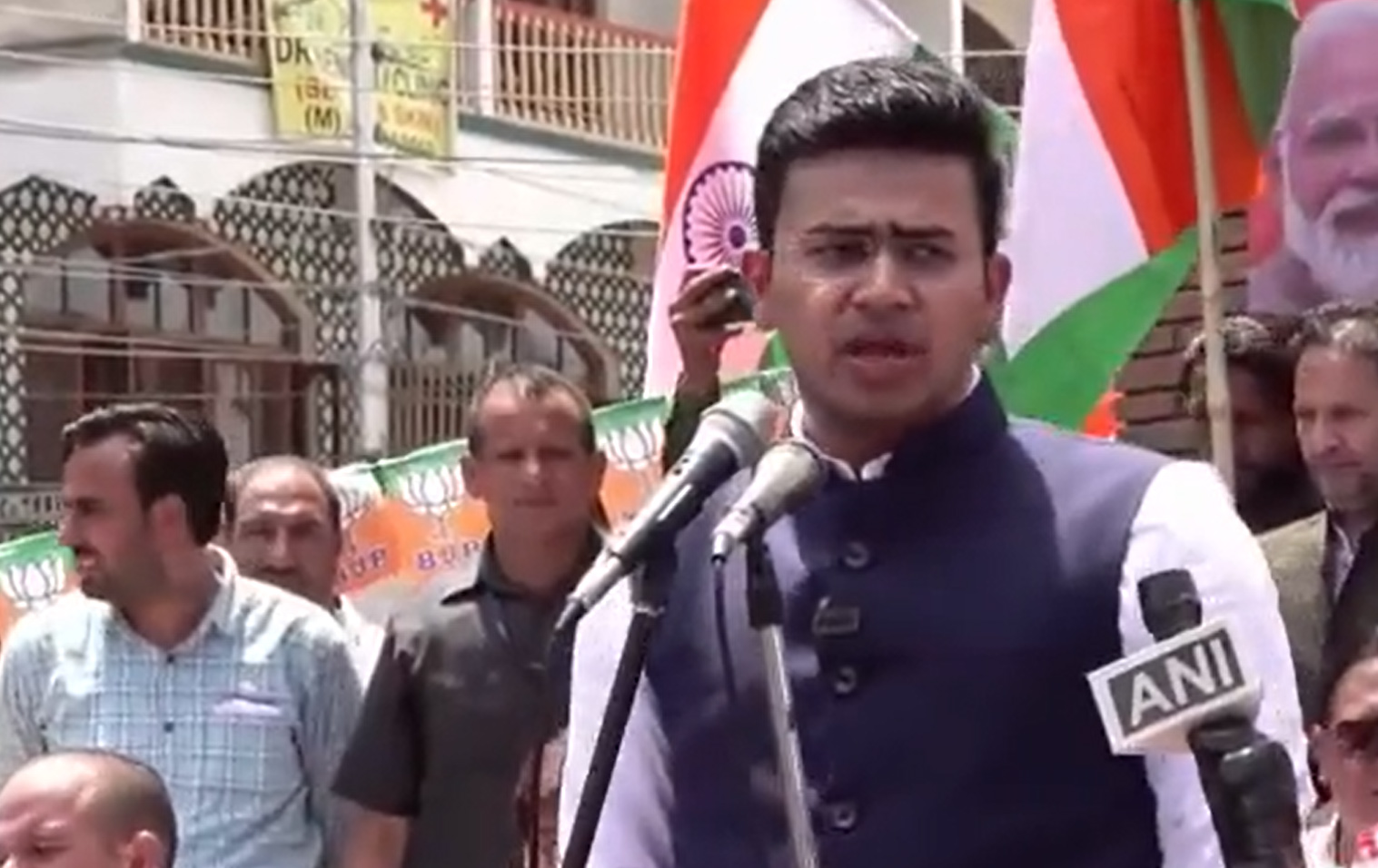Srinagar, Jul 25: Article 370 was not only a constitutional barrier in the way of Jammu and Kashmir’s full integration with India, but also posed as a cultural and psychological hurdle, BJP’s Tejasvi Surya said here on Monday.
Article 370, that granted the erstwhile state of J&K special status, was abrogated by the Centre in August 2019.
Surya, the president of the party’s youth wing, was here to flag off the first-ever Tiranga bikers rally from Lal Chowk to Kargil War Memorial.
Speaking at the historic ‘Ghanta Ghar’ (clock tower), Surya said after the abrogation of Article 370, development came to Kashmir and the valley is now “done with terror.” “Kashmir is done with terrorism and is on the path of development. We used to hear and read every day about terrorist attacks, stone-pelting, Hurriyat-issued calendars, but today, the same Kashmir is known for its hydro-electric power projects, new expressway, IITs, AIIMS, IIMs, new central universities and new initiatives of development.
“This is happening because Prime Minister Narendra Modi abrogated 370,” he said.
The BJP leader said Article 370 was a cultural and psychological barrier “which did not allow us to complete the constitutional vision of ‘Ek Bharat, Shresth Bharat’.” “When Article 370 was there, the youths of Kashmir were bereft of any opportunities. For education opportunities they were compelled to go to Delhi, Pune, Bengaluru. But a world class education is now available in Kashmir only and there is no need to go outside,” he said. “This is the transformation that Modi has brought.” The Bengaluru South MP also claimed that the revocation of Article 370 empowered women and reserved category people in the Union Territory.
“We are at an opportune time in history where the next 25 years will determine the peaceful, prosperous future of J&K and the rest of Bharat,” he said.
After the independence, Shyama Prasad Mukherjee called for Kashmir’s complete constitutional integration with India, and it was Modi who fulfilled that job, he said.
“Now, it is our responsibility to take forward this work of constitutional integration and do J&K’s complete cultural, social and economic de-integration.
“This is an important civilisational task that the young of India and young of Kashmir must take,” he said.
Surya said tourism and terrorism cannot co-exist in Kashmir.
“Kashmir saw the highest tourist footfall in its history this year only. Lakhs of youth got employment opportunities because of tourism. This has proved one thing — tourism and terrorism cannot co-exist,” he said.
“The youth of Kashmir today has proved that they are against terrorism, want to end it, and avail new opportunities in tourism. This is the new path of development that young people of Kashmir have started,” he said.
Surya also appealed to young industrialists, entrepreneurs, investors, and visionaries from across the country to invest in Kashmir.
“New industries should be started in Kashmir, new colleges , medical schools, start-ups be set up in Kashmir.
“The youth of Kashmir are hard working, intelligent and because of the lack of opportunities, they have not progressed. The unicorns of India’s tomorrow must come from Kashmir. Leaders who can lead the country should come from Kashmir,” he said.
Surya said the rule of two families has come to a full stop after the abrogation of Article 370 – apparently referring to Abdullahs and Muftis, members of which families ruled the state at different times.
“Mehbooba Mufti or Omar Abdullah’s shops have shut. Democracy is flourishing at the panchayat level, grassroots level today in a spirited manner. I have met many young leaders. New parties are coming up here which are working on the nationalistic agenda rather than the separatist agenda,” he said.
Pakistani-sponsored elements continue to attack young activists from BJP to destroy the democracy in Kashmir, he said, as he paid tributes to the BJP workers killed by militants in the valley.
Towards the end, the BJP leader read out a few verses from an anti-war poem by Pandit Deenanath Kaul ‘Nadim’ which talks about a “new dawn” and a “better future.” (Agencies)
Home Latest News Article 370 was a cultural, psychological barrier in country’s integration: Tejasvi Surya


